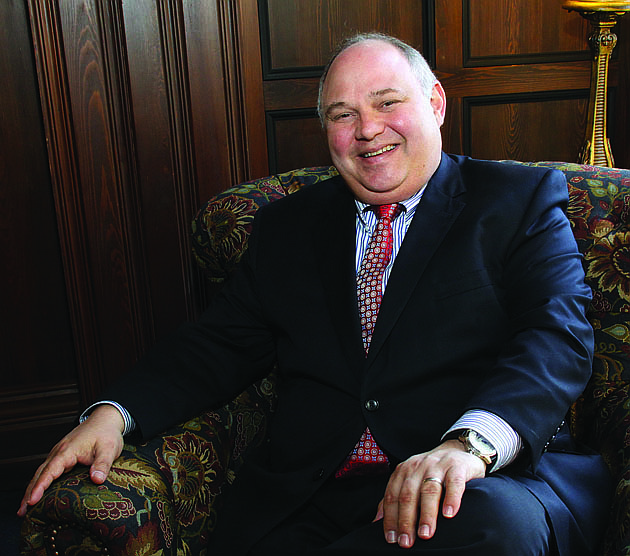Government intervention in housing could prolong the residential real estate downturn by as long as two years, Wells Fargo Securities Senior Economist Mark Vitner told a gathering of real estate executives in Bonita Springs.
Vitner, speaking to a meeting of the Urban Land Institute recently, says the first-time homebuyer tax credits was a temporary salve and the states' attorneys general action against lenders in the foreclosure process will further delay housing's recovery.
“Most builders are going into survival mode again,” says Vitner, a longtime observer of the Florida economy. “Housing prices are likely headed lower.”
By contrast, the government hasn't interfered as much in the commercial real estate market, allowing market forces to clear problems more quickly. “I feel much better about commercial real estate than residential real estate,” Vitner says.
The big price declines in commercial real estate have already occurred and a variety of sectors are already seeing improvements in vacancies and rents, from apartments to hotels, offices and warehouses. “The attitude of the leaders in the industry was more upbeat than anytime I can recall,” Vitner says of a recent meeting with commercial real estate leaders in New York City.
The delayed recovery in the housing markets means construction jobs won't be returning soon. Florida's large supply of low-skilled workers will have to be retrained for other jobs, so it probably will lag the nation in employment creation.
But don't look for health-care jobs to pick up the slack in real estate, Vitner cautions. Government health care reform won't help Florida because legislators' demand for greater efficiency and lower reimbursements means providers won't hire as many people. “Health care reform will limit job growth here,” he says.
Two areas that show promise are exports and international tourism, which explains why Miami and Orlando are faring better than other parts of the state. Vitner says retail sales in those two areas are now rising above pre-recession levels.
The consequences of the real estate bust are far reaching. For example, loans will continue to be difficult to obtain in Florida because most of the collateral is real estate. The real estate collapse wrecked Floridians' balance sheets and lenders are reluctant to make loans if the future of the real estate collateral is uncertain, Vitner says.
“If you think debt is hard to get now, wait until after Dodd-Frank takes place,” Vitner says, referring to the financial reform legislation passed by Democrats last year. “Credit trends are still pretty weak.”
However, the improvement in commercial real estate may provide some cushion. “We're very near the end of the price declines,” Vitner says. That could temper concerns about the wave of commercial real estate loan refinancing that has worried economists in recent years.
The problem with commercial real estate in this recession wasn't oversupply. Rather, lack of demand caused its troubles. “That shoe's already dropped,” Vitner says.
While fears of a dip back to recession have been eased by monetary intervention by the Federal Reserve, many challenges conspire to make business owners uneasy about spending money on new equipment and employees. Uncertainty over future tax rates, budget deficits and inflation are big worries, Vitner says. “The reason companies are holding cash is they see the economy is risky,” he says.






